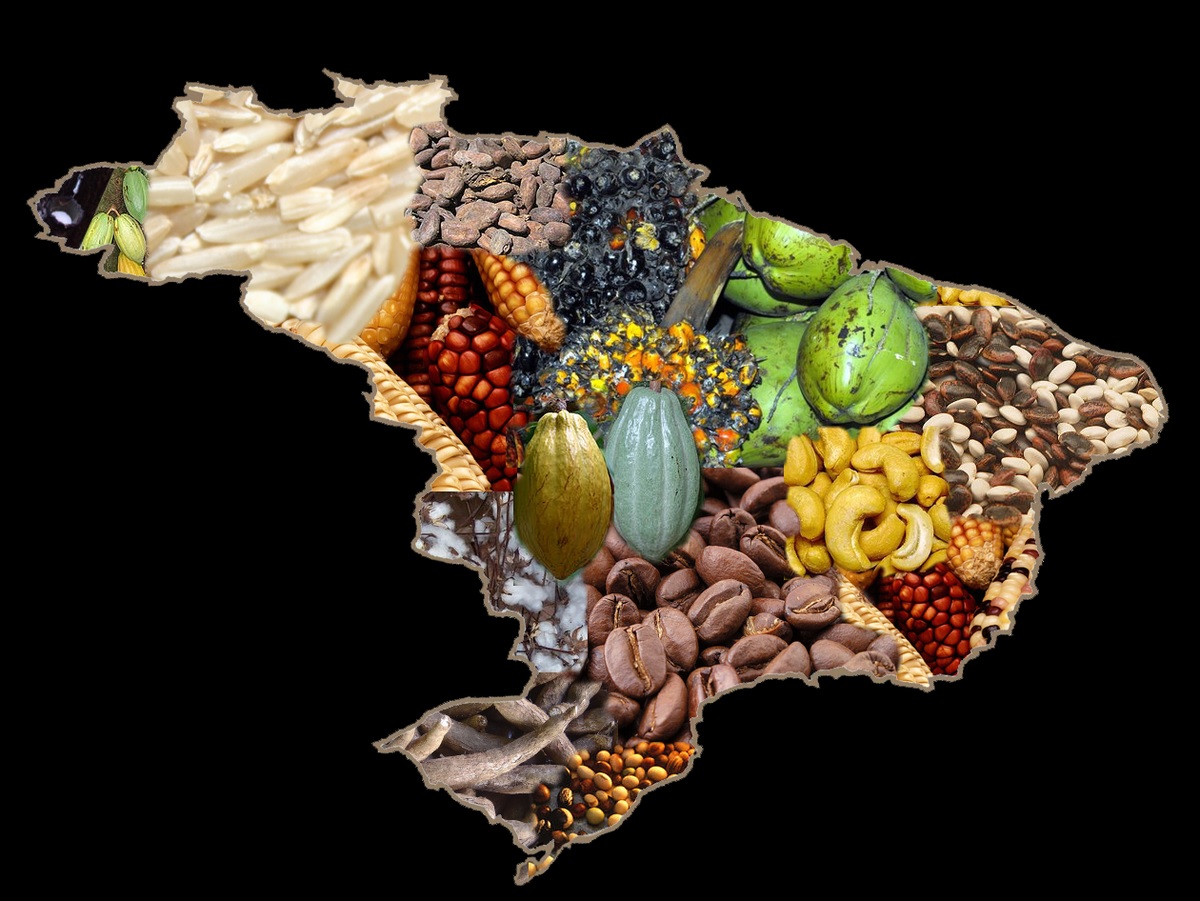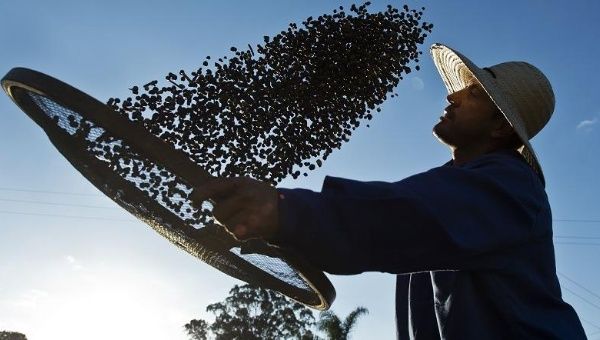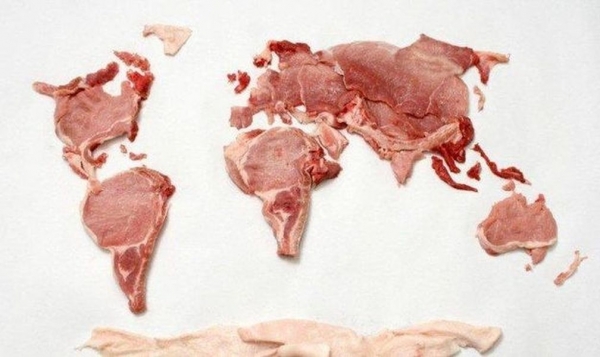By Marcos Tosi
Leading Brazilian agribusiness products, such as meat, orange juice and coffee, face the most protectionism and export barriers in the international market.
And a new wave of restrictions may be on the way after the European Union approved the controversial anti-deforestation law, which intends to impose unilateral criteria to say how other countries should protect their biomes.
The survey “Report on trade barriers identified by the Brazilian private sector”, prepared by the National Confederation of Industry (CNI) in partnership with 19 business entities, shows that, globally, the embargoes involve alleged sanitary and phytosanitary issues, technical regulations, licensing and, more recently, social and sustainability criteria, such as those announced by the European Union.
To overcome these obstacles, “being right” is not enough. The World Trade Organization (WTO) Appellate Body has been paralyzed for more than four years due to the U.S. blocking the appointment of new judges because of disagreement with some processes and procedures.
On the other hand, the worsening geopolitical disputes between Russia and China against the West destabilizes the trade flow, requiring more and more diplomatic skills in bilateral negotiations to open new markets and keep the spaces already conquered.

EU IGNORES GLOBAL PORK QUALITY SEAL
According to the map of barriers raised by CNI, several restrictions openly violate WTO rules and do not fit into any other category than mere protectionism.
An example is the ban on imports of Brazilian pork by the European Union. The last outbreak of foot-and-mouth disease, a kind of thermometer of good sanitary practices, was registered in Brazil in 2006.
Santa Catarina has been recognized as an area free of the disease without vaccination since 2007, while Paraná and Rio Grande do Sul have had this status since May 2021. Even so, the European authorities do not lift the embargo.
The block also does not recognize the Brazilian segregation system with regard to the use of the feed additive ractopamine in the pigs’ diet.
Unlike other countries that do not accept the substance, such as China and Russia, but recognize the segregated production and maintain purchases, Brussels prohibits shipments from avoiding risk.
Regarding chicken, Indonesia, a country with high demand for animal protein, has simply forbidden imports from Brazil for decades, even after being condemned in a trade dispute panel in the WTO.
Nigeria, another primary market, also prohibits the entry of Brazilian chicken and beef and has been delaying any opening, despite having already been sued by a WTO committee.
Mexico even opened its market through quotas in 2013, but in 2020 turned back, reducing the volume of poultry imports from Brazil by 96%.
PROTECTIONISM IS ON THE LOOSE
In the last thirty years, Brazil has been one of the most active countries in activating the World Trade Organization to resolve this type of controversy. Therefore, it is one of those who lose the most from its paralysis.
“Our main interest is that the WTO starts operating again. Protectionism is more on the loose, the game has become more brutal,” evaluates Ingo Plöger, vice-president of the Brazilian Agribusiness Association (Abag).
In the last few years, environmentalists have gained muscle in the European parliaments, leading the continent to focus on an overall decarbonization plan called the Green Deal.
“They took this Green Deal and started to internationalize it. The problem is that the plan may make sense for them, but when they internationalize it, not all the criteria are valid for other realities,” points Plöger.
Among the consequences would be the “total bet” on the electric car since the areas that Europe could allocate to the production of biomass for ethanol and biodiesel will be compromised with the increase in organic farming.
As for pesticides, by 2050, the block aims to reduce by half what is currently applied per cultivated hectare year.
“Only that we have three crops, so it is evident that we will spend more. If they took the criterion of a ton of production, the story would be different,” he emphasizes.

RECIPROCITY LAW – BRAZIL IS CONSIDERING PAYING THE EU IN THE SAME CURRENCY
The anti-deforestation law, approved by the European Parliament on the 13th of last month, still needs to be ratified by the parliaments of the member-states before it goes into effect.
Still, it is already provoking a strong Brazilian reaction, at least in Congress, which is analyzing a bill for “environmental reciprocity” with the support of the private sector.
“Some European producers use illegal labour to produce wine, olive oil and other products. So, in reciprocity, we can also ask them to certify each bottle of wine,” points out Plöger.
Even those who don’t look favourably on this erosion of the bases of the global trade organization, such as Daniel Vargas, professor at FGV Rio and PhD in Law from Harvard University, understand that Brazil has the right to pay in the same coin.
“If, on the one hand, they consider that we deforest and do not comply with minimum criteria of environmental requirements, on the other hand, we know that their products that arrive here use an energy load produced with coal that is infinitely greater than ours. And that, therefore, generates a negative environmental impact”, he stresses.
For Vargas, in a moment of tension between East and West, in which the European policy “preaches the valorization of trade with friends and neighbours, it is paradoxical that this norm pushes Brazil increasingly into the open arms of Asia,” he highlights.
MEAT, COFFEE, ORANGES – RESTRICTIONS LACK GROUNDS
Global trade does not admit naivety, and the complex game includes old partners, such as Saudi Arabia.
Fifty years ago, the country was Sadia’s first customer in the Middle East, and until recently led the ranking of Brazilian poultry shipments.
Since 2018, however, it has fallen to 5th place after cancelling licenses for 90% of the slaughterhouses qualified for export.
In the background, the Arab country’s stated goal of achieving 80% self-sufficiency by 2025.
This includes pressuring Brazilian companies to open units in the Middle East, as happened with BRF, which has the Saudi sovereign wealth fund as a shareholder and opened a factory in the city of Damman in June last year.
Among other embargoes to the Brazilian agricultural sector pointed out in the CNI and private entities survey, we can highlight the 10% tax on sugar sent to Argentina, 15% on orange juice that is not frozen and 32% on processed coffee sent to China.
Due to the supposed risk of mad cow disease, the ban on beef imports by South Korea, 30% tax on whole chicken and 100% on cuts and preparations shipped to India.
Curiously, Japan favours the entry of non-authentic orange juice by applying an import tax of 25.5% to concentrates with more than 10% of natural sucrose from the fruit.
This favours Brazilian competitors that use artificial industrial processes, which is not allowed by the Codex Alimentarius.
Thailand, China and Vietnam demand health certificates for wet blue leather imports from Brazil, in disagreement with the World Organization for Animal Health (OIE) norms.
The European Union is increasingly restricting the maximum residue limits of pesticides, even when within acceptable scientific parameters.
The block also intends to require audits to prove that products are not associated with deforestation, in addition to the border carbon adjustment mechanism (CBAM), a unilateral measure that will tax supposed CO2 emissions embedded in imported products.

REGULATORY AND BUREAUCRATIC BARRIERS GROW
For the analysts heard by Gazeta do Povo, the trade barriers have become more sophisticated and difficult to combat in recent years because they involve technical issues, regulations and licenses created to hinder access to specific markets.
This is the case of countries that do not approve of importing transgenic products whose technologies have not been tested in their territories, ignore the international test validity, or demand high-cost certificates that make trade unviable.
The so-called due diligence, audits in the production chains to prove sustainability practices, and adjustments also raise operating costs.
“What we are seeing is the rise of a new type of barrier, more sophisticated and complex, and therefore more sinuous and often diffuse and difficult to combat, which are these technical-bureaucratic barriers, abstract barriers of environmental criteria, without specific clarity of what they mean, but with obvious objectives of limiting certain products to benefit the economy and industry of a certain country,” says Vargas, from FGV.
In the long run, he adds, these countries will be putting lower quality and more expensive products on the tables of their consumers.
Even Brazilian cheese bread doesn’t have a visa for Europe.
The block does not accept certificates from two regulatory agencies, i.e. the Ministry of Agriculture and the Health Surveillance Agency.
Since Anvisa cannot certify information related to eggs and dairy products, which is a Ministry attribution, the cheese bread is still forbidden to be shipped.
QUALITY OF BRAZILIAN CHICKEN BREASTS
So many barriers and embargoes have not been enough to stop Brazilian agribusiness. The case of chicken is emblematic.
The country exports to 150 countries and hits successive records of shipments due to its recognized status of sanitary quality and competitive price, besides having been “helped” recently by cases of bird flu among its main competitors.
Despite the change in governments, the director of markets of the Brazilian Association of Animal Protein (ABPA), Luiz Rua, highlights that there is close and continuous cooperation of the production sector with the technical teams of the ministries in the effort to access new markets.
“We are relentless in this sense. These markets can open today, tomorrow, or in two or five years. But we never stop seeking access because we understand that the Brazilian product has quality, is healthy, accessible to the population and can help the countries’ food security,” he says.
For Rua, Brazil works in a way that does not hurt the poultry industry of importers but acts in complementarity, offering what is lacking in local production.
“We try to demonstrate that producing to meet only the needs of one cut, for example, would be much more inefficient for these countries. Our role is not to replace local production, which has its weight and importance in the economy.”
“We even offer raw materials so these same local industries can process and deliver value internally in their countries. That’s a little bit of how we work, and that’s why we are in 150 markets”, he emphasizes.
RELATIONSHIP BETWEEN THE PUBLIC AND PRIVATE SECTORS
The moment demands focus and pragmatism from the government in evaluating Ingo Plöger from Abag.
“On the environmental side, we have more advantages than disadvantages, and these advantages must be made operational. The government has to get out of the dogmatic question and get into the practical part.”
‘And join forces with the business side because we have this window of opportunity for Brazil to show itself as an agro-industrial power in sustainable energy and with a production chain that is very aligned. We have a lot of things, but we can’t keep fighting among ourselves; we have to unite to fight abroad”, he concludes.
If there is harmony between technicians from the private sector and the ministries to conquer new markets, it is impossible to say the same about the government’s first level, judging by recent events.
Like the presence of MST chief João Pedro Stédile in Lula’s entourage in China while his militancy was promoting farm invasions in Brazil and the declarations of Apex president Jorge Viana, who on the same trip “demoted” the Brazilian agro-industry that preserves 282 million hectares of native vegetation, associating the sector to the deforestation of forests.

